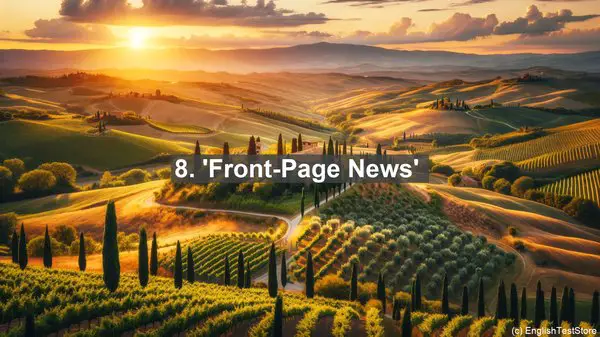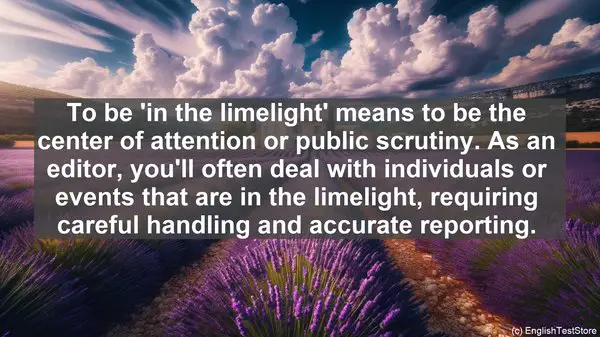1. ‘Read Between the Lines’
This idiom means to understand the hidden meaning or message in a text. As a newspaper editor, it’s essential to decipher not just the literal words but also the underlying implications.
2. ‘Hot Off the Press’
When something is ‘hot off the press,’ it means it’s fresh and just been published. As an editor, you’ll often come across breaking news or urgent stories that need immediate attention.

3. ‘In the Headlines’
The ‘headlines’ refer to the most prominent news stories. ‘In the headlines’ means something is currently receiving a lot of attention or is widely discussed. It’s crucial for an editor to stay updated with what’s in the headlines.
4. ‘Cover Story’
The ‘cover story’ is the main article featured on the front cover of a newspaper or magazine. It’s usually the most significant or attention-grabbing piece. As an editor, you’ll often have to decide which story deserves the cover spot.
5. ‘Breaking News’
This term is used to describe news that is happening at that very moment or is just coming in. As an editor, you’ll need to quickly assess the importance and accuracy of breaking news before deciding to publish it.
6. ‘Off the Record’
When information is ‘off the record,’ it means it’s not for publication or attribution. As an editor, you’ll sometimes receive off-the-record tips or statements that can provide valuable insights but can’t be directly quoted.

7. ‘In the Limelight’
To be ‘in the limelight’ means to be the center of attention or public scrutiny. As an editor, you’ll often deal with individuals or events that are in the limelight, requiring careful handling and accurate reporting.
8. ‘Front-Page News’
When something is ‘front-page news,’ it means it’s significant enough to be featured on the front page. As an editor, you’ll need to determine which stories deserve this prime position to grab readers’ attention.
9. ‘Behind the Scenes’
This phrase refers to the activities or information that happens privately or is not visible to the public. As an editor, you’ll often have to go behind the scenes to uncover the full story or context.
10. ‘In Black and White’
When something is ‘in black and white,’ it means it’s in writing or documented. As an editor, you’ll often have to work with contracts, official statements, or legal documents that are in black and white.
